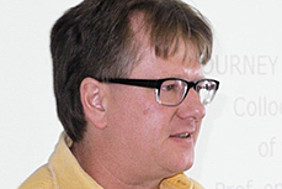“Performing The American Presidency”
Visual Aesthetics and Cultural Implications of Staged Privacy
The lecture focuses on the performance of privacy – that is on the strategies employed by American presidents and presidential candidates (and their teams) for the staging of privacy in what is actually a public sphere. It will first contextualize the cultural and political functions of the private sphere in American political culture within the concept of Republican Citizenship, which was sort of ‘Americanized’ during the American Revolution. Ever since the much mythologized founding of the American nation – and based on the values projected onto the so-called founding fathers –, this concept has been responsible for linking the perception of public virtue with the (representation of) private lives of political leaders. Against this background, the private lives of American presidents and their families have often come to serve as a projective surface for the American society at large. In the wake of this development, the president has more and more come to be represented as a rather common man (and his family as a rather ordinary American family), in spite of the fact that he usually is anything but an average citizen. Beginning with the presidency of John F. Kennedy in the 1960s, which has set the standard with regard to the modern media representation of American presidents and the First Family in many ways, this talk will highlight some prominent examples of staged presidential privacy, drawing attention to the stability of this performative strategy. In doing so, it can be observed that the most recently elected president, Donald Trump, is as unconventional in this arena as in most other fields of political culture and political practice.
Karsten Fitz is Professor of American Studies / Culture and Media Studies at the University of Passau. He has also taught at the Universities of Regensburg and Bayreuth. He studied American Studies and Political Science at the University of Hannover, where he received his M.A. in 1994 and his Ph.D. in 2000. He also studied at the University of Washington, Seattle. Fitz received the Fulbright American Studies Fellowship 2002-2003, which he spent at Harvard University and the American Antiquarian Society in Worcester, Massachusetts. In addition, he has conducted research at the American Indian Studies Center of the University of California, Los Angeles, at the University of California, Berkeley, and on the Blackfeet Indian Reservation in Northern Montana. His monographic works are Negotiating History and Culture: Transculturation in Contemporary Native American Fiction (2001) and The American Revolution Remembered, 1830s to 1850s: Competing Images and Conflicting Narratives (2011). He has edited an anthology titled Visual Representations of Native Americans: Transnational Contexts and Perspectives (2012). Together with Birgit Däwes and Sabine Meyer he is the editor of the book series Routledge Research in Transnational Indigenous Perspectives. He also co-edited (with Birgit Däwes and Sabine Meyer) the first volume of this series, Twenty-First Century Perspectives on Indigenous Studies: Native North America in (Trans)Motion (2015). Fitz has also published articles on American popular visual culture, cultural memory, American political culture, and the teaching of American Studies in the EFL-classroom in various journals and conference volumes. Most recently, he has co-edited (with Baerbel Harju) the conference volume Cultures of Privacy: Paradigms, Transformations, Contestations. Fitz is a member of the Research Training Group (Graduiertenkolleg) on “Privacy” funded through the German Research Foundation (DFG).
28.06. 2017 10:00 - 11:30
Department of American Studies Graz
Institut für Amerikanistik
Attemsgasse 25/II
A-8010 Graz
SR D34.D2
The event is free and open to the public.
This lecture is organized by the Department of American Studies and the Centre for Intermediality Studies in Graz (CIMIG).
